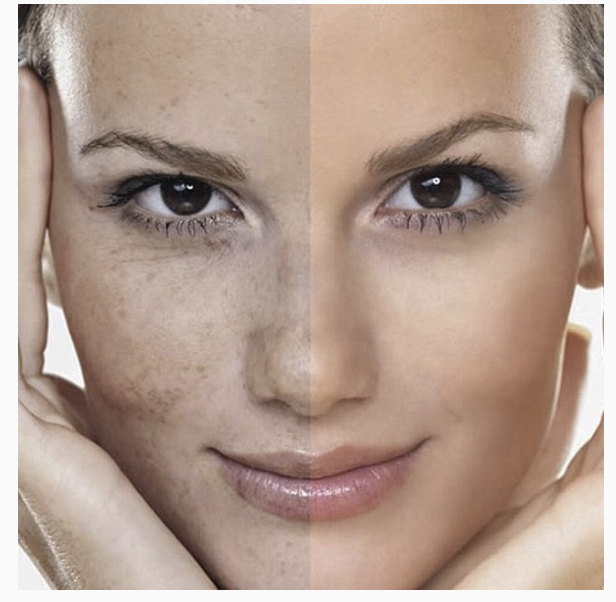Pure Indulgence Beauty Therapy
 Protecting the skin from the sun should be a major concern for clients of all ages. As Skin care professionals, we need to educate you on what you can do to prevent damage before it is too late. 1. Preventing sun damage is much easier than restoring wrinkles. It is always easier to prevent than it is to reverse. Sun damage can cause wrinkles, discolored skin, and more serious health consequences AND in some cases, once the damage is done, there is no going back. 2. Avoid deep exfoliating procedures and chemical peels during the summer. These treatments make the skin more photosensitive by removing layers of the epidermis (the top layer of your skin) that can act as a protective shell. The same is true for skin care products formulated with retinol, alpha hydroxyl acids, and other lightening agents. Products containing these ingredients are best used in the evening. 3. Protect your skin with broad-spectrum sunscreen. The SPF number on the bottle indicates how much safe, sun-exposure time can be extended. Determine the time it takes for their unprotected skin to start turning red on a sunny day. Safe, sun-exposure time depends on genetic disposition, location, and the time of day (the sun is most active between 11 a.m. and 4 p.m.). For example, if your skin starts to change color after 10 minutes, by applying sunscreen with SPF 30, your safe, sun-exposure time will be extended 30 times. After 300 minutes, you will need to reapply sunscreen. 4. Location determines the strength of the ultraviolet rays that penetrate the skin. If you are in the water or the snow, your safe, sun-exposure time diminishes significantly, as ultraviolet rays are reflected off the surface of snow or water. 5. The sun is most active at the equator. When traveling north, more protection is needed. Along with sunscreen, wear protective hats and clothing to avoid serious sun damage. 6. Be very careful when at higher elevations. The earth’s atmosphere helps filter ultraviolet rays, so if clients are at higher elevations, like the mountains, they are less protected. 7. Zinc oxide is a great active ingredient for sunscreens. It provides broad-spectrum protection by physically reflecting ultraviolet rays. It has been safely used for generations and is preferred over nanoparticles, which are not as effective. 8. Food can affect how skin responds to the sun. Processed foods with trans fats can contribute to wrinkles, skin discolorations, and other more serious conditions. Colorful, organic fruits and vegetables filled with antioxidants, like tomatoes, will support the skin during sun exposure. 9. Photosensitivity is a side effect of some medications like Accutane, Benadryl, and tetracycline. If clients have to take medical drugs, have them check the list of side effects to determine if they need to take extra precautions in the sun. 10. Elevated estrogen levels and other hormonal changes often result in heightened photosensitivity. This photosensitivity can lead to hyperpigmentation. For example, melasma, the mask of pregnancy, presents as skin discoloration. Women who are taking birth control pills or who are on hormone replacement drugs may also experience similar side effects, unless they take extra measures to protect themselves from the sun. Thanks to Elina Fedotova for inspiration for this blog.  Skin care comes down to practicing good habits. Here are five tips that can help guard against skin cancer, chapped skin, dryness, and more. You need to protect your skin because of the vital role it has protecting your body. Skin care doesn’t have to be complicated or time-consuming, and can quickly become second nature, just like brushing your teeth. These five skin protection tips can keep your skin looking and feeling great, by guarding against a slew of skin woes, from chapped skin to prematurely aging toskin cancer. 1. Limit Sun Exposure You’ve heard the message a zillion times, and there’s good reason for that unrelenting repetition. Ultraviolet rays emitted by the sun cause many types of skin damage:
Using skin care products that offer ultraviolet protection is one of the best ways to help keep your skin looking fresh and youthful: Use sunscreen every day and reapply regularly whenever you're outdoors for extended periods. Cover skin by wearing long-sleeved shirts, pants, and wide-brimmed hats. Stay indoors when the sun is at its most intense, usually between 10 a.m. and 3 p.m. 2. Stay Hydrated Keeping your skin moist is essential to skin protection. Skin that is properly hydrated retains pliability and prevents chapped skin or scaly, flaky skin: Drink lots of water. This is key to hydrating your skin. Use the right moisturizing cream or lotion for your skin type and apply it right after drying off from your bath or shower. Avoid products that contain sodium lauryl sulfate, as this ingredient removes natural oils needed by your skin. Take warm (not hot) showers or baths, and limit them to between 5 and 10 minutes. It seems counterintuitive, but exposure to water actually dries out your skin. If dry skin persists, consider cutting back on the number of baths you take. 3. Take Health Precautions Cold sores are caused by a viral infection of the skin bordering the lips, while bacteria can contribute to acne and other skin conditions. Practicing skin protection means paying close attention to what touches your skin, to lower your chances of exposure to germs: Don't share any personal items, such as lip balms or toothbrushes. Don't share drinks with other people. Avoid touching your face with your fingers or with objects like telephone receivers that have been used by others. 4. Use Gentle Skin Care Washing your face is important to remove dirt, oils, germs, and dead cells. However, scrubbing your face causes irritation that can lead to chapped skin that, in turn, can leave skin vulnerable. For best results, you should:
5. Know Your Skin Pay attention to odd freckles, moles, and growths on your skin, and consult your doctor if you notice any changes. For example, a change in a mole can indicate potential skin cancer. Be sure to treat any cuts that may occur to prevent infection. Other skin conditions that merit a dermatologist visit include frequent acne, inflamed or irritated dry skin, and skin rashes and irritations that don’t go away, as these could be signs of one of the many types of dermatitis, or skin inflammation. With proper skin care to pamper skin from the outside and with a good diet to nourish from within, skin protection comes down to a few simple steps. But should you ever notice any problems, get medical attention to resolve them quickly and avoid putting your skin at risk. |
Categories
All
Archives
September 2019
|
Opening Hours:Monday: Closed
Tuesday: 10am - 7pm Wednesday: 10am - 5pm Thursday: 10am - 8pm Friday: 10am - 5pm Saturday: 10am - 2.30pm Sunday: Closed |
Text:Address:168 Kendal Ave
Burnside Christchurch |
Email: |
Pure Indulgence Beauty Therapy operates by appointment only.
,Since 2010 Pure Indulgence has been emphasising self love and care and building a community of like minded people. We pride ourelves on our educated and professional therapists, whilst also ensuring your experience is relaxing. We are an advanced skin, IPL and beauty clinic situated in Burnside, Christchurch. We comibine relaxation with luxurious skincare and modern technology to bring you treatments that work.
©2023 Pure Indulgence Beauty Therapy Nz Ltd. All Rights Reserved
